Keynote Speakers
Opening speakers
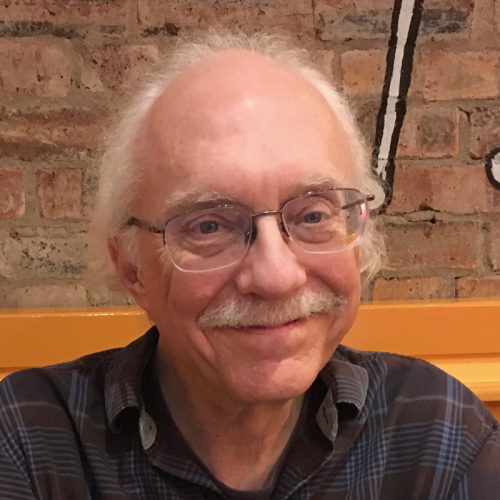
Robert Elliott
Opening Conference Talk - Monday 4 July 2022 15.00:IN SEARCH OF THE KERNEL OF INTERPERSONAL HELPING
How can I be of help? More precisely: What can person-centred-experiential psychotherapies and counsellors do to be helpful to the clients who come to them for help? What kinds of therapist response are most likely to be experienced as helpful by clients, and under what circumstances? Are answers to these questions to be found in broad, high-level concepts such as empathy, warmth, genuineness and presence, or is it possible to be more specific and concrete? Are these questions even answerable at all? In this talk I offer a welcome to the conference by way of describing my journey in search of “the Kernel of Interpersonal Helping”, the holy grail of PCE therapy research. I describe the tension between abstract, large-scale meta-analytic research, which we can do for political reasons, and PCE micro-analytic research, which can open doors into the concrete, lived experiences of clients and therapists, which can offer rich payoffs in understanding the change process and improving our practice with our clients. Along the way, I refer to Gene Gendlin's presentation at the first World PCE conference in 1988, a recent meta-analysis of research on the therapist reflection response mode, and the promise of conversation analysis for illuminating how help occurs moment by moment in PCE therapies. All of this, plus a brief preview of themes in upcoming presentations at the conference!
Robert Elliott, Ph.D., is Professor of Counselling at the University of Strathclyde (Glasgow, Scotland). They received their doctorate in clinical psychology from the University of California, Los Angeles, and are professor emeritus of psychology at the University of Toledo (Ohio). Their main research interests are in change processes in humanistic-experiential psychotherapies and psychotherapy research methodology. They are co-author of Facilitating emotional change (1993), Learning emotion-focused psychotherapy (2004), Research methods in clinical psychology (2015), Essentials of Descriptive-Interpretive Qualitative Research (2021), and Emotion-Focused Counselling in Action (2021), as well as more than 180 journal articles and book chapters. Robert is past president of the Society for Psychotherapy Research, and previously co-edited the journals Psychotherapy Research, and Person-Centered and Experiential Psychotherapies. They are a fellow in the divisions of Clinical Psychology, Psychotherapy, and Humanistic Psychology of the American Psychological Association. They have received the Distinguished Research Career Award of the Society for Psychotherapy Research, and the Carl Rogers Award from the Division of Humanistic Psychology of the American Psychological Association. They currently divide their time between Scotland and California, where they enjoy running, science fiction, and all kinds of music.
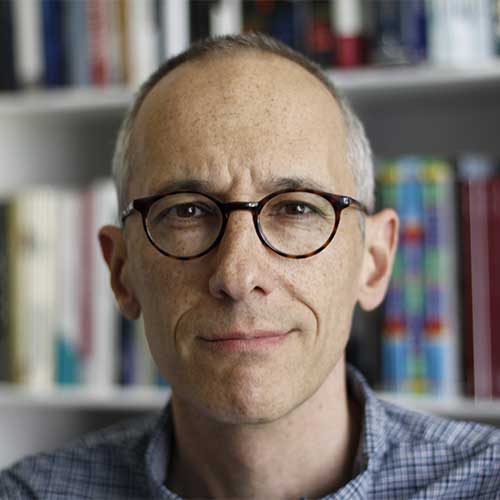
Dan Zahavi
Opening Conference Talk - Monday 4 July 2022 16.15EMPATHY AND APPLIED PHENOMENOLOGY
Empathy is a core notion in phenomenology, but has also been taken to be of crucial importance for psychotherapy. In my talk, I will start out by discussing Rogers’ take on empathy and then compare and contrast it not only with the classical analyses of Husserl and Stein but also with some current approaches in order to address the question of how empathy can help the psychotherapist help the client. Using empathy as a test case, I will then move to a more methodological discussion: What is the best way to use ideas from phenomenology outside of a philosophical context. What should psychotherapists do if they want to draw on phenomenology?
Dan Zahavi is Professor of Philosophy at University of Copenhagen and University of Oxford, and director of the Center for Subjectivity Research in Copenhagen. Zahavi’s primary research area is phenomenology and philosophy of mind, and their intersection with empirical disciplines such as psychiatry and psychology. In addition to a number of scholarly works on the phenomenology of Husserl, Zahavi has mainly written on the nature of selfhood, self-consciousness, intersubjectivity, empathy, and social ontology. His most important publications include Self-Awareness and Alterity (1999), Husserl’s Phenomenology (2003), Subjectivity and Selfhood (2005), The Phenomenological Mind (together with Shaun Gallagher) (2008/2012), Self and Other (2014), Husserl’s Legacy (2017), and Phenomenology: The Basics (2019). Zahavi also serves as the co-editor in chief of the journal Phenomenology and the Cognitive Sciences. Over the years, Zahavi has received a number of academic awards for his work including the Elite Research Prize, and the Carlsberg Foundation’s Research Prize. He is also the recipient of an Advanced Grant from the European Research Council. His writings have been translated into more than 30 languages.
Main speakers
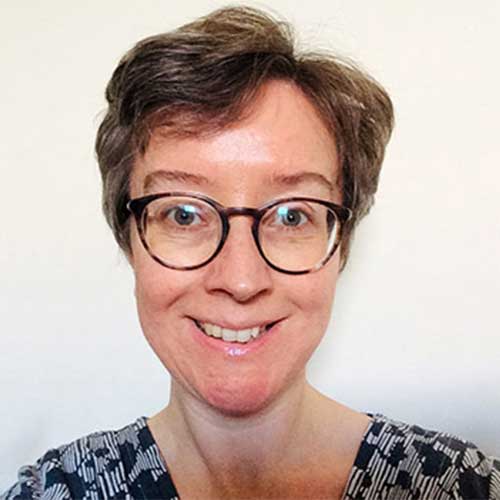
Susan Stephen
Main Conference Talk - Tuesday 5 July 2022 - 8.45-10.00HOLDING TRUE: THE CONTINUING RESONANCE OF ROGERS’ THEORY
Being a person-centered therapist involves commitment to an emergent practice in which we bring our whole (congruent) selves, meeting our clients person-to-person without techniques or manuals to ‘manage’ the process. In today’s incongruent world, this approach is as radical as it was in Rogers’ time. My response to Rogers’ question - how can I be of help? - will focus on what ‘helping’ means to me as a person-centered therapist. First, the kind of help (that is, outcome) that clients can anticipate when working with a fully-involved person-centered therapist. I will introduce a model of ‘congruent functioning’, a contemporary reframing of Rogers’ concept of the fully functioning person. I will consider how we work with our clients’ expectations of therapy (typically shaped by the dominant paradigm) when we invite them to ‘sign up’ for this counter-cultural kind of help. Second, I will reflect on the nature of the commitment that we make as person-centered therapists to help our clients in this way. Maintaining our own congruent functioning is an ongoing process, especially challenging when living and working in a results-oriented culture. How can we support ourselves and our colleagues to ‘show up’ for each and every client?
I will argue that Rogers’ theory holds true in contemporary person-centered practice and that as person-centered therapists we can be of most help to our clients when we are able to hold true to ourselves.
Susan Stephen, Ph.D., is a lecturer in counselling at the University of Strathclyde (Glasgow, Scotland) and a person-centered therapist and supervisor in private practice. Her research interests include investigating the development of congruent functioning in person-centered therapy and its cross-cultural meaning and relevance, exploring methodological innovations in measure development and systematic case study research, and supporting practitioners to develop an informed approach to measurement in counselling. Susan is an active member of the national and international person-centred community with contributions as Secretary of PCT Scotland (2004-7, 2020-21), Chair of the Board of the World Association for Person-Centered & Experiential Psychotherapy & Counseling (2010-2013; Board Member, 2008-14), and, since 2018, as a co-editor of the international peer-reviewed journal, Person-Centered & Experiential Psychotherapies.
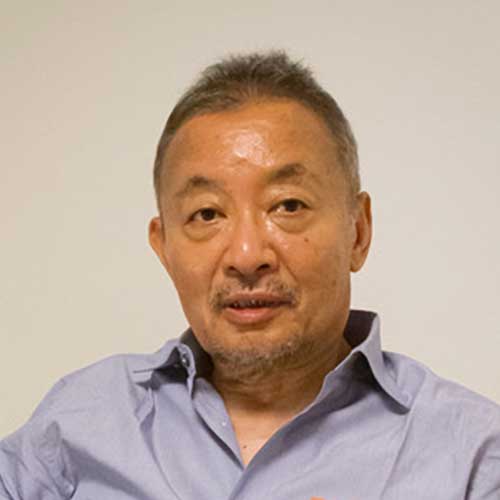
Akira Ikemi
Main Conference Talk - Wednesday 6 July 2022 - 8.45-10.00HOW CAN I BE OF HELP: FORMULATING THE EXPERIENCING MODEL OF PSYCHOTHERAPY
In order to understand what is going on in the interaction between the therapist and the client, I have formulated, and am still in the process of formulating a model of psychotherapy which I have come to call ‘the Experiencing Model’. I will illustrate this model through a recorded Focusing session. The model includes several assertions about psychotherapy. These include: (1) rather than the notion of ‘unconscious material’ coming into consciousness, psychotherapy is seen as a careful ‘saying’ of experiencing for which words and concepts have not yet been formulated; (2) Such ‘saying’ in the therapeutic relationship arises out of mutual Re-experiencing (Nacherleben) of the Focuser and the Listener; (3) ‘Saying’ is viewed as an instance of experiencing, expression and understanding; (4) Through such ‘saying’, one becomes aware of much which were implied. The temporality of such explications was called ‘the carried forward was’. The forward movement of carrying forward generates novel understandings of the past, thereby overwriting previous formulations of the meaning of past events.
Akira Ikemi, Ph.D. is professor at Kansai University Graduate School of Psychology. He studied with Professor Eugene Gendlin at the University of Chicago Graduate Division and then worked in a municipal hospital in Japan. He went on to teach full-time at a number of universities in Japan before joining Kansai University. Akira is one of the founders and past-presidents of the Japan Focusing Association, and has served as board members of organizations including the Japanese Association for Humanistic Psychology, The International Focusing Institute, WAPCEPC. Currently he is the Chair of the Eugene Gendlin Center for Research in Experiential Philosophy and Psychology. He was awarded the Humanistic Psychology Award by Japanese Association for Humanistic Psychology in 2020.
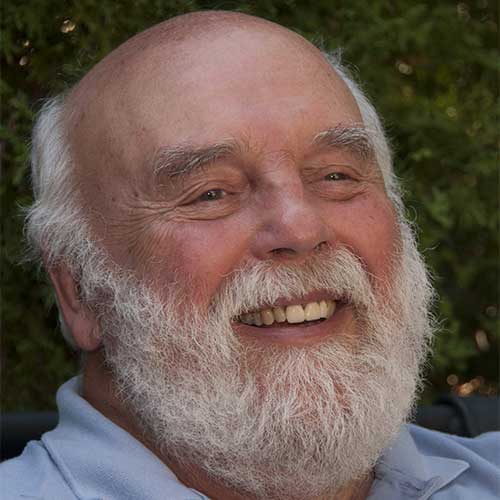
Leslie Greenberg
Main Conference Talk -Thursday 7 July 2022 - 8.45-10.00CHANGING EMOTION WITH EMOTION
Emotion developed evolutionarily to promote survival and growth. Emotions are generated at the psychological level by appraisal of situation in relation to need and orient us to the environment by both providing information and action tendency. As such emotion is the process by which the organism evaluates what is good or bad for it. Emotions operate in the domain of value, is this good or bad for me and do I like it or not, Cognition on the other hand evaluates truth is this true or false, right or wrong. Emotions are more central in psychological function and dysfunction than cognition and both acceptance and change of emotions are important in the transforming emotional distress. Work on transforming the underlying emotional cause of psychological dis-ease is important for enduring change and differs from modification of symptoms and provision of coping skills. I will propose changing emotion with emotion as a basic principle of emotional change and suggest that one of the best ways to transform amygdala-based fear, sadness and shame is with another emotion. Learning outcomes: 1) Learn to identify different types of emotional processing, 2) Learn how to intervene differentially with emotion, 3) Learn how to change emotion with emotion.
Leslie Greenberg, Ph.D., is Distinguished Research Professor Emeritus of Psychology at York University in Toronto. He was originally trained in Person Centered and Gestalt therapy and engaged in psychotherapy research. He has authored the major texts on Emotion Focused Therapy from the first books Emotion in Psychotherapy (1986) and Emotionally Focused Therapy for Couples (1988) to most recent Emotion-Focused Therapy (2015) and Emotion Focused Therapy of Forgiveness and Letting Go (2019). He has received both the Early Career and the Distinguished Research Career Award of the International Society for Psychotherapy Research as well as the Carl Rogers and the Distinguished Professional Contribution to Applied Research of the American Psychology Association. He also has received the Canadian Psychological Association Professional Award for distinguished contributions to Psychology as a profession. He is a past President of the Society for Psychotherapy Research. He now spends the majority of his time training people in emotion–focused approaches.
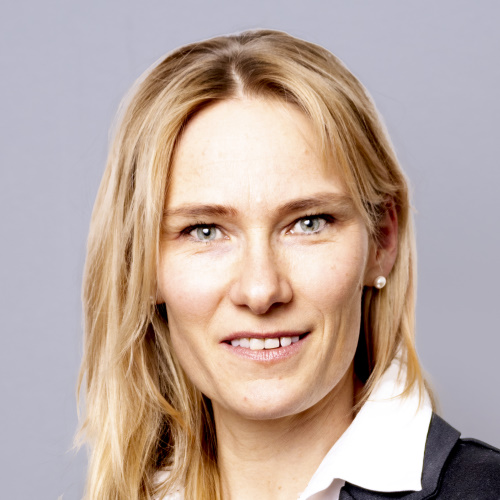
Dagmar Nuding
Main Conference Talk - Friday 8 July 2022 - 8.45-10.00BEING OF HELP IN PERSON-CENTERED AND EXPERIENTIAL TREATMENT OF YOUNG PEOPLE
During adolescence young people realize that their “being-in-the-world” changes in almost every area of life. These transition process of several years between childhood and adulthood demands continuous adaption performance. Recent studies show that the corona pandemic has an extensive impact on the vulnerable group of young people. The complexity, the amount and seriousness of symptoms of the cases and the associated impairment and the suffering increased. Also the ukraine conflict, that will be with us for many more years, concerns young people in different ways. Out of that results the necessity to conceptualize the special and additional requirement in the area of preservation of mental health und psychotherapeutic treatment for young people. In her talk Dagmar will present a person-centered way, illustrated with case-examples how counselling and psychotherapy can be helpful for young people throughout challenging times.
Dr. Dagmar Nuding works as lecturer for counselling, intervention and clinical psychology at the University of Education in Schwäbisch Gmünd, Germany. As psychotherapist for children, young people and families she practices in a private practice. More than ten years (2010-2022) she was part of the board of the German Association for Person-Centered Therapy and Counselling (GwG). 2012 she was honored with the Virginia Axline Young Talent Award for her research about the efficacy and effectiveness of person-centered therapy for children and young people. Together with Mick Cooper and Jeanne Watson she edited the book Person-Centered Psychotherapy Works. 2010-2016 she was part of the Editorial Board of the International Person-Centered Journal PERSON. 2011-2016 and 2019-2022 she edited the journal Gesprächspsychotherapie and Personzentrierte Beratung. Dagmar is involved in the training of person-centered counselors and therapists for children and young people in Germany.
Semi plenary speakers
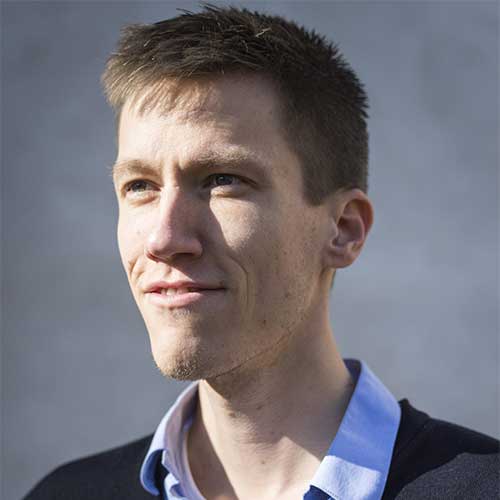
Christian Hjortkjær
Tuesday 5 July 2022 - 10.30-11.45”YOU ARE A TOY!” – KIERKEGAARD’S CONCEPT OF COURAGE AND ANXIETY IN TOY STORY
Unlike Rogers, Denmark’s own Søren Kierkegaard was an anti-humanist thinker. Like Paul, Luther and Freud he views the human psyche to be fundamentally split in a way that can never fully recover. Therefore, if we are to truly help another human being, “one must first and foremost take care to find him where is and begin there” – which is in both the anxious relation to the Other and in the despair of not wanting to be oneself.
Through an analysis of Pixar’s Toy Story we will see how “the secret art of helping” according to Kierkegaard is not an attempt to ease the pain or remove the problems in life but rather an upbuilding act of helping the other person to regain the very courage to live.
Christian Hjortkjær, Ph.d. from The Søren Kierkegaard Research Center at The University of Copenhagen. Author of several books on the topics of existential theology, ethics and psychology. Currently lectures, writes and teaches existential matters at a Danish Folk High School.
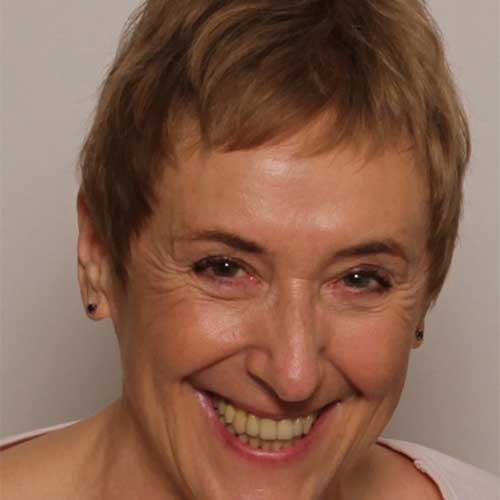
Sheila Haugh
Tuesday 5 July 2022 - 10.30-11.45TRAINING AND SUPERVISION OF PERSON-CENTRED THERAPISTS: AN INFINITE LINE IN A FINITE SPACE
The topic was found through a delphi panel using the scientific committee as the expert panel. THERAPIST TRAINING AND DEVELOPMENT was one of the top 5 themes answering the question: What are or will be the most important themes/topics that represent the emerging growth edges of the PCE approach in the next 10 years?
At the beginning of the 21st century the activity of therapy has become – at least in my experience – commodified, codified and controlled. Likewise, the training and supervision of therapists has followed these trends and is a very different activity than when Rogers started training those people, those students, who wanted to work like him. In quantum mechanics there is a notion of an infinite line in a finite space. I don’t pretend to understand quantum physics, and this phrase – an infinite line in a finite space – has really caught my imagination. In the context of this topic, it means something about the tensions between boundaries that are increasingly surrounding the training and supervision of therapists – the finite space of the so called ‘professional’ obligations and requirements of becoming a therapist - and the infinite space where the variety of how individuals learn, how individuals can be of help when called a therapist and what a talented and skilled person-centred therapist might look like when you see their ‘work’. The principles and process of therapist development implicit in Rogers’ model of training need to remain the same, even if the expression of those principles has developed and changed to meet the new [therapy] world order. These principles can be very easily described in the same way as the 5 therapist conditions Rogers proposed for the work of a therapist. The expression of these conditions, of course, is noticeably different in a training environment. This presentation will look at how the principles of the person-centred approach and therapy can be expressed in the training and supervision of person-centred therapists and the implications of the increasing regulation of therapist training generally and for person-centred training and therapy specifically.
Sheila Haugh is a person-centred therapist, supervisor and trainer. She works in Prague (Czechia) and London (England). Over 30 years ago, along with Irene Fairhurst and Tony Merry, Sheila was a founder of the Institute for Person-Centred Learning (IPCL), one of the first organisations in the UK offering a professionally accredited training in Client-Centred Counselling and Psychotherapy and Applications (accredited by the British Association for Counselling [and Psychotherapy]). With colleagues, she then went on to develop one of first person-centred psychotherapy recognised programmes (with the United Kingdom Council for Psychotherapy [UKCP]) and in Prague, a course recognised by the Česká psychoterapeutická společnost ČLS JEP. She is now Director of Studies for the MSc Contemporary Person-Centred Psychotherapy and Applications (UKCP recognised) at the Metanoia Institute in London.
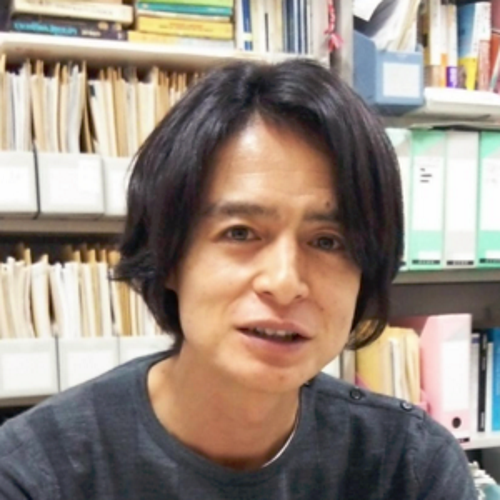
Shigeru Iwakabe
Wednesday 6 July 2022 - 10.30-11.45SUFFERING AND FLOURISHING: POSITIVE EMOTIONS AND THEIR ROLES IN TRANSFORMING EMOTIONAL PAIN AND FACILITATING THERAPEUTIC CHANGE
The topic was found through a delphi panel using the scientific committee as the expert panel. PSYCHOTHERAPY PRACTICES AND IN-SESSION PROCESSES was one of the top 5 themes answering the question: What are or will be the most important themes/topics that represent the
emerging growth edges of the PCE approach in the next 10 years?
Psychotherapy have long focused on psychopathology and human problems. Although it is essential that therapists empathically listen to, witness, and respect client’s suffering and emotional pain, it is also important that we never lose sight of our potential for healing, growing, and flourishing. Indeed, emotional change occurs not only by addressing painful and maladaptive emotions but also by facilitating deepening and exploring experiences of positive emotions that can broaden our behavioral repertoires and build our psychological and physical resources. In Accelerated Experiential Dynamic Psychotherapy (AEDP: Fosha, 2000, 2021), the therapeutic roles of positive emotions in client transformational process are systematically laid out with distinct classes of positive emotions delineated. Positive emotions are not only the result of successfully working through emotional pain but are drivers of change and are systematically worked through to ignite, facilitate, and accelerate therapeutic changes. In this semi-plenary talk, I will discuss findings from AEDP Practice-Research Network Study on roles of positive emotions in in-session change processes and therapeutic principles that are particularly useful in working with client positive emotions with a particular focus on initial sessions. Person-centered psychotherapists will be most optimally of help to their clients when they deeply honor, explore, and work through both human suffering and flourishing.
Shigeru Iwakabe, Ph.D., is a professor in Clinical Psychology at Ochanomizu University in Tokyo, Japan. He conducts psychotherapy research on client emotional processes from an integrative perspective. His research interests include: training and professional development in psychotherapy, case study research method, psychotherapy integration, and cultural and social issues related to the practice of psychotherapy. His publication includes: Iwakabe, S., Fukushima, T., & Ito, E. (2013). Introduction to clinical psychology: Traversing various approaches. Iwakabe, S. (2010). The process of qualitative research in clinical psychology. Iwakabe, S. (2009). Research methods in psychotherapy process research. Iwakabe, S. (2008). Clinical explorations of therapeutic failures: How therapists face, work through, and grow from their mistakes. He also translated several major books on emotion-focused therapy into Japanese. He serves as a co-chair of research committee for Accelerated Experiential Dynamic Psychotherapy (AEDP), directing an international practice-research network study examining the process and outcome of AEDP. He is the past president for The Society for Exploration of Psychotherapy Integration (SEPI). He serves as a member of executive committee for Japanese Association of Clinical Psychology and also as a committee member of several psychological associations. He is a co-chief editor for Counselling Psychology Quarterly and also on an editorial board member for a number of international journals. He also practices both individual and couples therapy from an affect-focused integrative perspective.
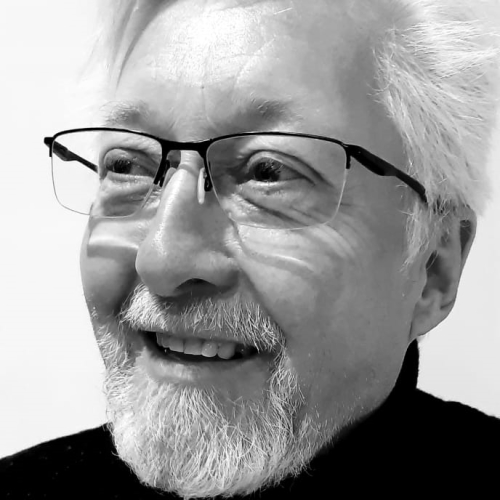
Peter Berliner
Wednesday 6 July 2022 - 10.30-11.45HOW CAN WE BE OF HELP? INDIGENOUS COMMUNITY HEALING TODAY
More info will follow
Worldwide many Indigenous communities suffer from severe social and mental health challenges and are in a process of revival and developing culturally and contextually appropriate healing methods. These methods build on the cultural richness of traditions of healing and social support through collective (comunitas) events with storytelling, art, and spirituality. This holistic and dialogue-based approach to empathy and connectivity could both inform and learn from the PCP and experiential approach – and offer an alternative to the often diagnosis focused understandings in (post)colonial institutionalized psychotherapy for Indigenous populations. In a dialogue with Indigenous healing methods the CPC and experiential approach can be applied for individuals but as well for groups and local communities. The presentation will give case examples from psychotherapy and psychosocial workshops with people in the Inuit culture in Greenland. The examples will show that individual as well as groups express a huge need for simply being listened to with empathy as a means of healing though building a safe space with trust, human dignity, and connectivity. In that space it is possible to try out new understandings, relations, and solutions and strengthen individual and community self-determination. In this context, the healing process of self-determination may proceed in social transformations which can be understood as rooted social activism as it includes a transformation of the psychosocial processes of daily life in the community. The Inuit’s holistic understanding of mental and social healing can offer important perspectives to PCP in the face of climate change and the need for social sustainability globally.
Peter Berliner is a licensed Clinical Psychologist and accredited Specialist and Supervisor in Psychotherapy and Organisational psychology. He is a Professor of Arctic Community Psychology at Ilisimatusarfik/The University of Greenland. He was born in Tasiilaq on the east coast of Greenland. Head of the University of Greenland Centre for Child, Youth, and Family Studies and the UArctic Thematic Network on Children in the Arctic – Traditional Knowledge and Sustainable Development. He has done psychosocial workshops, trainings, and supervisions in zones of conflicts and disaster, including The Philippines, Honduras, Guatemala, India, The West Bank, Kosovo, Jordan, and Haiti - for institutions and international NGO’s, amongst others the UN, Danida (Denmark´s Development Cooperation, The Ministry of Foreign Affairs), the International Federation of the Red Cross/Red Crescent, and Safe the Children. He has been engaged in psychotherapy, community psychology-based intervention and prevention programs, education, and training of staff in Denmark, Greenland, Norway, Finland, the Dominican Republic, UK, Mexico, and Russia. His research is primarily on methods psychotherapy as contributions to building social resilience and social sustainability. His research is informed by participatory action research and Indigenous methodology – but primarily it is based on dialogue and is human, i.e., participant, centered and aiming at building self-determination.
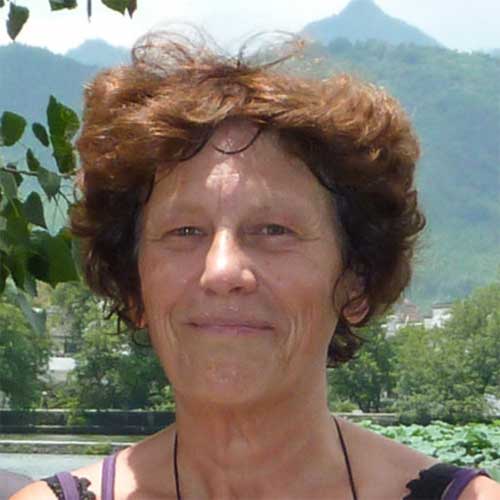
Greet Vanaerschot
Thursday 7 July 2022 - 10.30-11.45THE BRAIN IS FRIENDLY - LOOKING THROUGH THE LENS OF AFFECTIVE NEUROSCIENCE TO UNDERSTAND PSYCHOLOGICAL PROBLEMS AND HOW PCE THERAPY CAN BE OF HELP
The topic was found through a delphi panel using the scientific committee as the expert panel. A NEW PARADIGM – ALTERNATIVE TO MEDICAL MODEL was one of the top 5 themes answering the question: What are or will be the most important themes/topics that represent the emerging growth edges of the PCE approach in the next 10 years?
In recent decades neuro-affective scientists have emphasized the importance of emotions for our thinking and acting. Based on cross-species neuroscientific research, Jaak Panksepp has developed a model about emotion processing in the brain and social connectedness. According to him, emotion processing takes place in three evolutionary layers of the brain that have different functions in the generation and regulation of emotions and that are strongly interconnected with each other. The basic affects of the primary emotional system are the foundation; these are further processed via the higher psychological processes into more complex patterns of feeling, thinking and behavior. This model helps to understand how emotion processing works in a differentiated way. It offers us insight into the learning processes that lead to (mal)adaptive emotional processing processes. It also provides us with tools to help our clients choose a focus to work on and to choose and use relational and process-oriented responses to facilitate emotion processing in our clients. It supports the PCE view of psychological maladjustment and its origins: as blocks of the organismic tendency, as frozen wholes or as attempts to have one’s needs met in suboptimal conditions, such as the Rogerian conditions of worth. Mental health problems can be seen as the result of creative attempts and learning processes to develop oneself in interaction with one’s environment. This model offers an alternative to the medical model, more specifically to psychiatric descriptive diagnostics such as the DSM-5: a classification system that looks at mental health problems as disorders, comparable to medical disorders; as clusters of symptoms or as syndromes that are an expression of a dysfunction in psychological, biological or developmental processes.
Greet Vanaerschot, clinical psychologist and Phd in Psychological Sciences. Professor of psychotherapy, University of Antwerp, coordinator of the Postgraduate training programs in Psychotherapy for adults, children and adolescents, and of the training program for supervisors in psychotherapy; associate professor at Psychotherapy training program RINO Utrecht, the Netherlands. Works in private practice. Published on empathy and empathic processes in various client problems, and was editor of several handbooks: The Dutch Handbook Person-centered and experiential psychotherapy (2008); Empathy. The Secret Weapon of Psychiatrists and Psychotherapists (2015); Supervision as Process (2021). She published on the Panksepp model on emotion processing in the Dutch Handbook of Psychiatry (2016). In december 2021 she received the Wim Trijsburg Prize for psychotherapy from the Dutch Association of Psychotherapy.
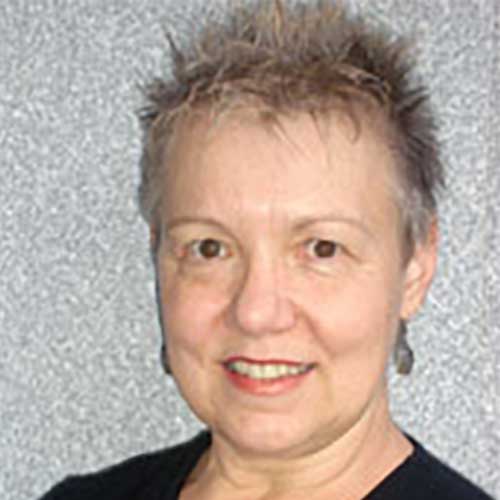
Carol Wolter-Gustafson
Thursday 7 July 2022 - 10.30-11.45LIVING BETWEEN LIGHT AND DARK, FRAGMENTATION AND WHOLENESS: CHOOSING THE ORGANISMIC PARADIGM AS A POLITICAL ACT
The topic was found through a delphi panel using the scientific committee as the expert panel. POLITICS AND POLICY FOR GLOBAL AND SOCIAL CHANGE was one of the top 5 themes answering the question: What are or will be the most important themes/topics that represent the
emerging growth edges of the PCE approach in the next 10 years?
How can I be of help in the context of our deeply divided world, amidst a war and suffering?
Asking this question early in life, I have taken up permanent residence at the intersection of personal, social, and political change. After decades of reading, studying, experiencing, organizing, processing, canvassing, protesting, and facilitating workshops, I believe my questions have improved. I have no question about the depth of Carl Rogers’ commitment to democratic principles in action.
Over those decades, a steady stream of person-centered authors have taken up essential, yet neglected political problems in our work. I will highlight their significant contributions in my talk.
I am offering three theoretical points for your consideration.
1.) The power of Rogers revolutionary theory and practice lies in the power of the premise that organismic integrity is a powerful, foundational construct that strengthens our position vis-à-vis other theories.
2.) Biased-Binary Constructs (B-BC) represent Socially Constructed Conditions of Worth (SCCW). As such they fuel "otherness" and endanger those whose non-binary difference can be targeted for attack. They lie outside the construct of Unconditional Positive Regard (UPR). I practice resistance to being pulled into the magnetic Biased-Binary field that distorts the integrity of our approach. There is no need to confuse or conflate it with other Biased-Binary accepting theories. I invite you to resist.
3.) Embracing our embodied, organismic integrity in a Biased-Binary world is, in itself, a political act. Importantly, it is intrinsically congruent with client-centered theory and practice that values inclusion and acceptance. It contributes to strengthening respectful democratic communities.
I look forward to our discussion together
Carol Wolter-Gustafson (she/her) received her Ed.D from Boston University’s Department of Humanistic and Behavioral studies focused on integrating theory and practice, the personal and the political. At Lesley University (Cambridge, MA. USA) she taught humanistic psychology, philosophical foundations, and human development/learning. As an independent researcher, author, and visiting professor (Mexico, the UK, and Brazil) she has focused on the Person Centered Approach and cultivating pathways out of “us versus them” thinking and rhetoric, particularly relating to gender and race. She co-created Going Global Workshops exploring our personal and social connections to social justice. Since 2011, Going Global workshops have been held in the UK, Italy, and the USA. Civil Discourse workshops began in 2020. Her publications include: Toward Convergence: Client-centered and Feminist Assumptions about Epistemology and Power (2004); "Non-dualism and non-directivity: A person-centered concept of health and the fully functioning person; Rogers' Generative Framework of Organismic Integrity: Scientific Evidence Challenging Academic, Medical and Pharmaceutical Forces (2013); The Person Centred Approach: Beyond Therapy (2016). She maintains a client-centered psychotherapy practice in Boston (USA).
Closing Session
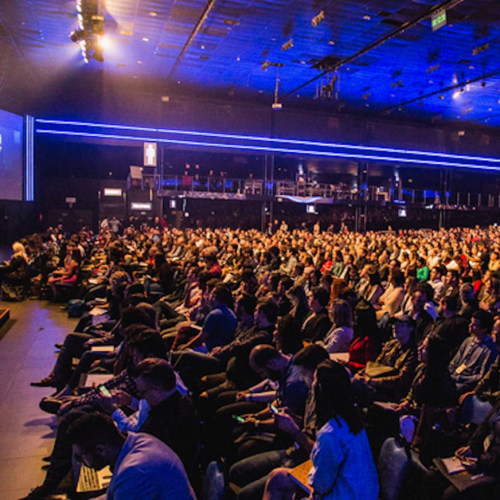
Closing panel
Friday 8 July 2022 - 10.30-11.45HOW CAN I BE OF HELP?
The conference closes with a panel summing up the discussions and learnings through conference. It will be a look at HOW CAN I BE OF HELP? with the experience of the previous conference days in mind. On the panel is
- Susan Stephen
- Leslie Ellis
- Dagmar Nuding
- Leslie Greenberg
- Robert Elliott (moderator)
The floor is open for a debate and exchange with the community of the conference.
The conference draws toward its end with a thank you to all involved and a last summing up. We will start looking towards the next conference PCE2024. The conference ends in ceremonial way with a moving art performance and a farewell from the conference hosts.

